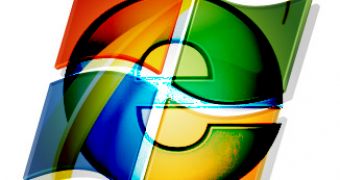Microsoft has been given the green light to test the Browser Ballot Screen in Windows 7, and previous releases of the Windows client in Europe, as a step forward on the company’s path to compliance with EU antitrust regulations. The measure, proposed by the software giant, comes after the European Antitrust Commission expressed concerns earlier this year, that the bundle of Internet Explorer and Windows was breaking anti-monopoly laws in the EU. In addition, the Redmond company will allow original equipment manufacturers to install rival browsers not just in Windows 7 but also in Windows 8, and to disable the default IE components that will ship with the platforms, for copies of the operating systems that will be pre-installed on new PCs.
“Microsoft would make available for five years in the European Economic Area (through the Windows Update mechanism) a choice screen enabling users of Windows XP, Windows Vista and Windows 7 (Microsoft's next version of its PC operating system) to choose which web browser(s) they want to install in addition to, or instead of Internet Explorer. Likewise, in future versions of Windows, including Windows 7, PC manufacturers would be able to install competing web browsers, set those as default and disable Internet Explorer,” the Commission noted. (emphasis added)
Because of at least the five-year span of Microsoft’s solution designed to solve its IE-Windows antitrust troubles in the European Union, the Browser Ballot Screen will stretch from past Windows releases to Windows 7 and even to the next iteration of the Windows client, Windows 8. At the same time, just as it is the case with Windows 7, Windows 8 will continue to feature the option to disable Internet Explorer 8 altogether via the Control Panel, in the Switch Windows features on or off section.
“The improvements that Microsoft has made to its proposal since July would ensure that consumers could make a free and fully informed choice of web browser. Microsoft has in particular agreed to present users with a first screen explaining what web browsers are. "Tell me more" buttons for each browser would also enable users to learn more about the web browser they may wish to install. The user experience would be better and the choice screen would better represent competing browser vendors. Finally, the proposed commitment would now be subject to a clause allowing the Commission to review it in the future to ensure that consumers would continue to have a genuine choice among browsers,” the Commission added.
On January 15th, 2009, the European antitrust regulators slapped Microsoft with a Statement of Objections concerning the fact that the tying of IE with Windows was a monopoly move, and as such, that the software giant was abusing its dominant position on the market. The Statement of Objections was the result of a complaint filed by Opera, the maker of the Opera browser, and IE rival, in 2008. The Redmond company attempted to defend the IE and Windows marriage, but in order to conform with EU antitrust law, threatened to have Internet Explorer completely stripped out of Windows. The move gave birth to the short-lived Windows 7 E editions for European customers, containing the operating system but no IE, or any other browser for that matter.
“The Commission's concern has been that PC users should have an effective and unbiased choice between Internet Explorer and competing web browsers to ensure competition on the merits and to allow consumers to benefit from technical development and innovation both on the web browser market and on related markets, such as web-based applications. The Commission's preliminary view is that Microsoft's commitments would address these competition concerns and is market testing Microsoft's proposal in light of these requirements,” the Commission noted.
Customers in Europe running Windows XP, Windows Vista and Windows 7 will be served the Browser Ballot Screen through Windows Update in the following weeks, as Microsoft will debut testing the measure as part of the agreement with the European antitrust regulators. Via the Browser Ballot Screen, users will have an easy choice to choose as default either Internet Explorer, or a rival browser, including Firefox, Opera or Google Chrome.
The EU Commission added that, come October 9th, 2009, it would formally invite all interested parties, including consumers, software companies, and computer manufacturers, to comment on the Browser Ballot Screen for Windows 7. Microsoft welcomes the go-ahead to start testing the browser screen application. “We welcome today’s announcement by the European Commission to move forward with formal market testing of Microsoft’s proposal relating to web browser choice in Europe,” revealed Brad Smith, general counsel, Microsoft Corporation.

 14 DAY TRIAL //
14 DAY TRIAL // 
